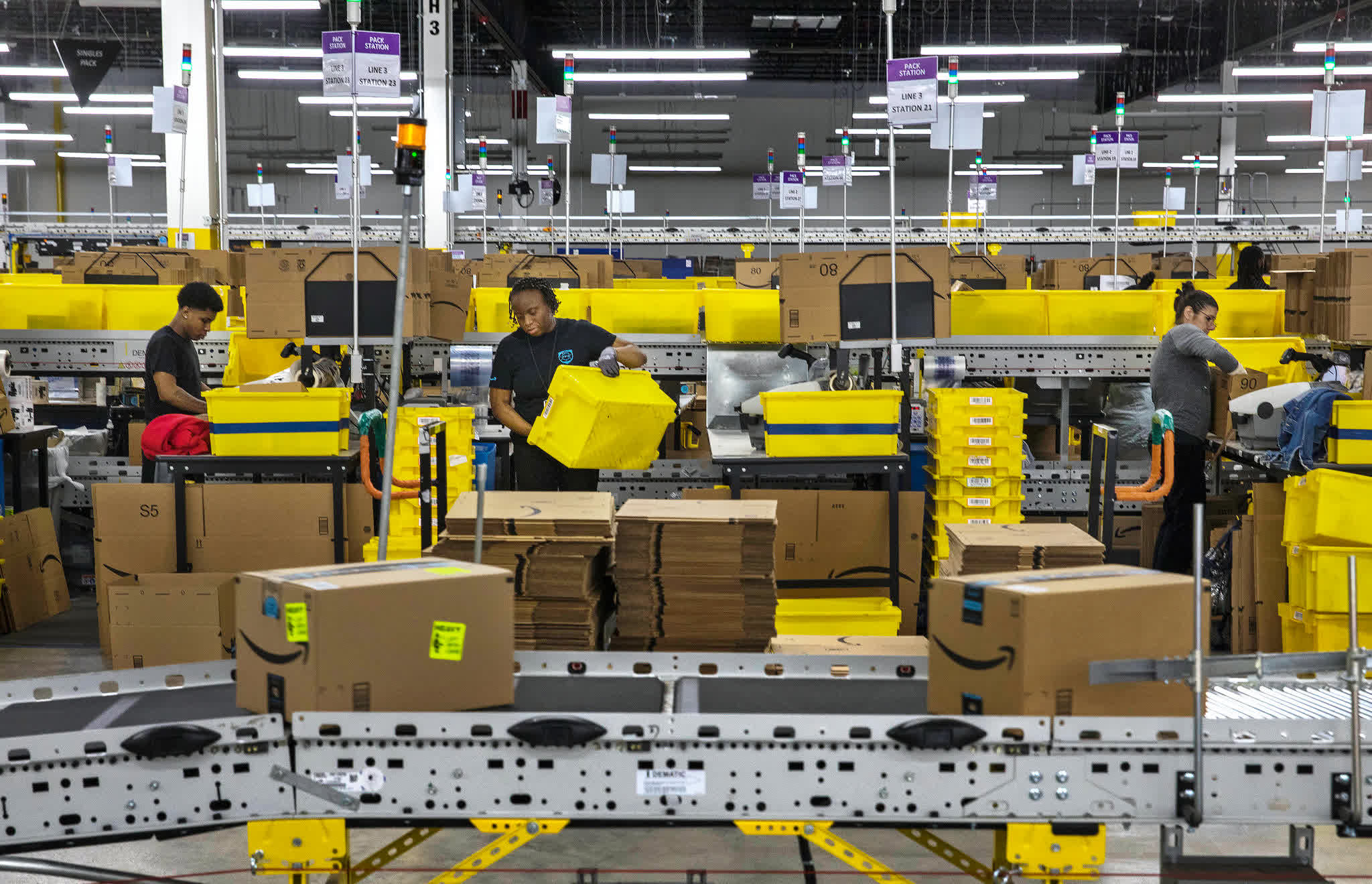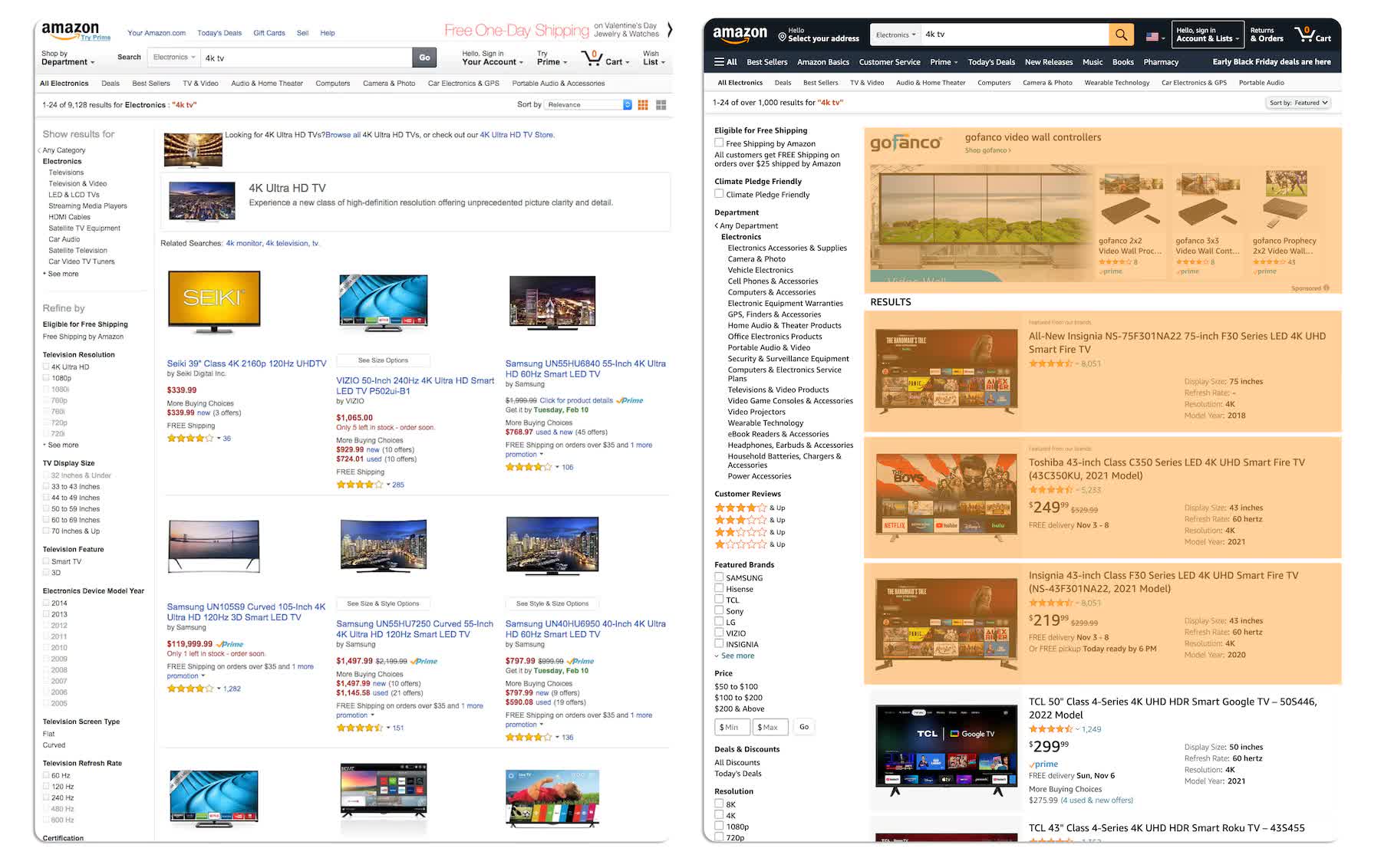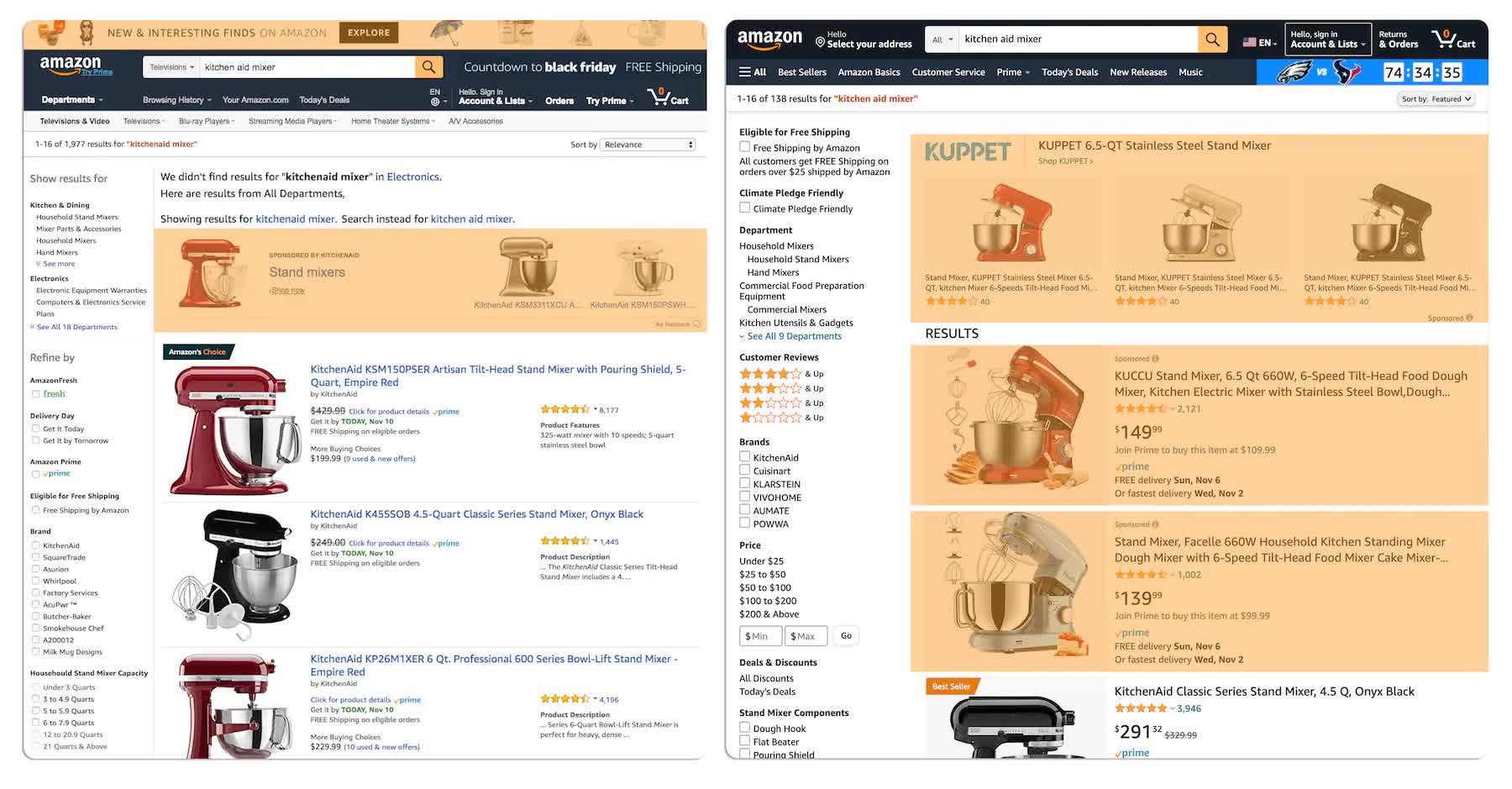The big picture: If it wasn't obvious, Amazon has somewhat confusing methods for promoting specific products to customers. People have begun to notice how seemingly broken shopping on Amazon has become in recent years due to "sponsored products" and items that Amazon touts as "highly rated."
As we get closer to the holiday season, millions of people are either beginning, continuing, or wrapping up their shopping sprees. Amazon is no stranger to the influx of orders and deliveries during this time, boasting a ridiculous 1.5 billion items delivered around the 2020 holidays. However, some buyers are starting to view the shopping experience on Amazon in a much different light.
Last week, Geoffrey Fowler of The Washington Post released a report regarding changes that Amazon (and other competitors who followed suit) have gone through over the past few years. Previously, Amazon's algorithms based product search results on reviews, popularity, and the overall quality of the items. However, things have changed. Companies may be able to buy their way to the top of the search page, Fowler contends.
The image above provides an example, showing search results for "4K TV." The left one, from 2015, only displays the most popular products within the search. On the right, sponsored items take up over half the screen, one of which isn't even a TV and shouldn't be appearing there.
Fowler describes these items as "shill results" rather than "sponsored products." He states that Amazon sold $31 billion worth of ads in 2021, the third most behind only Google and Facebook. Amazon spokesman Patrick Graham claims these ads are "useful, informative, and help make shopping a little bit easier," but it appears they could be doing the opposite.
Fowler provided another example comparing 2015 search results to current-day result pages, showing a search for a specific brand --- KitchenAid mixers.
The 2015 screenshot (left) correctly shows five mixers by KitchenAid. The recent results (right) only display one KitchenAid product and five other products from different companies. If someone is looking for a KitchenAid product, it doesn't make sense to promote five items that aren't from that company immediately. Amazon ensures these changes present customers with "more choices" and "drives discovery."
Fowler urges customers to take control in two specific ways. First, educate yourself on how Amazon uses ads to promote products to you. Terms such as "sponsored" or "featured from our brands" or even logos from unrelated companies (as seen above) are all indicators of these so-called "shill results."
Secondly, research what you are considering purchasing before browsing through Amazon. If you know what you want, Amazon's attempts to lure you towards a different item may prove unsuccessful. Fowler hopes customers changing their approaches to shopping on Amazon could lead the company to change its methods for tailored recommendations.


